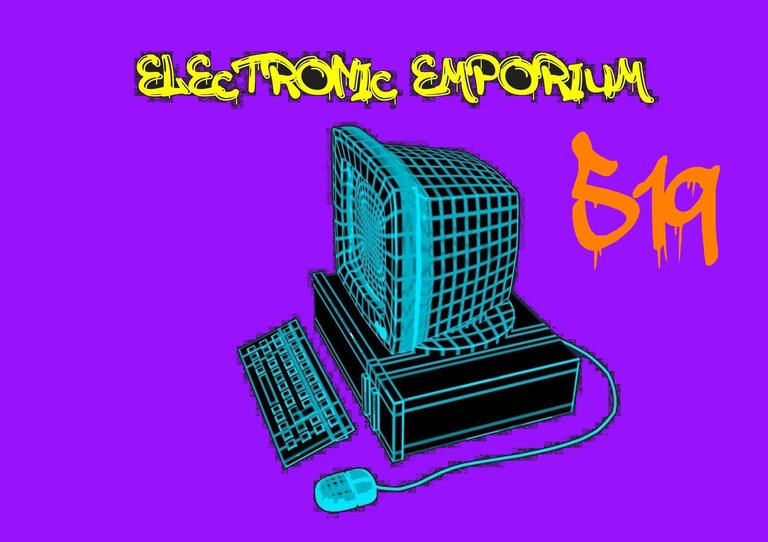Guest Post Featuring Electronic Emporium 519; An Electronic Distributer providing High Quality Computers and Support Across North America
www.ElectronicEmporium519.com

Optimizing computer performance and speeding up slow computers can be a daunting task for many users. However, with the right tools and techniques, you can easily improve the performance of your computer and make it run faster. Here are some tips to help you optimize your computer's performance and speed up a slow computer:

Remove unnecessary programs and files
One of the main reasons for a slow computer is the accumulation of unnecessary programs and files. Uninstall programs that you no longer use, and delete any files that you no longer need. This will free up space on your hard drive and improve the performance of your computer.
Upgrade to an SSD
Upgrading from a traditional hard drive to a Solid State Drive (SSD) is one of the most effective ways to speed up your computer. SSDs are much faster than hard drives, and they can significantly improve the boot time and overall performance of your computer.
Adjust performance settings
Adjusting performance settings can help you optimize the performance of your computer. In Windows, you can adjust the performance settings by going to the Control Panel and selecting System and Security.
Add more memory
If your computer is running low on memory, adding more RAM can improve the performance of your computer. This is especially helpful for computers that are used for resource-intensive tasks such as video editing or gaming.
Upgrade your CPU
Upgrading your CPU can also improve the performance of your computer. A more powerful CPU can handle more tasks at once, making your computer faster and more responsive.
Manage Startup programs
The programs that load automatically when your computer starts up can have a big impact on the load time of your computer. Manage the startup programs so that only the essential programs are loading automatically
Run disk cleanup
Disk cleanup is a built-in tool in Windows that can help you remove temporary files, system files, and other files that are no longer needed. This can free up space on your hard drive and improve the performance of your computer.
Run disk defragmenter
Disk defragmenter is another built-in tool in Windows that can help you optimize the performance of your computer, however, it's only for hard drives. SSDs have TRIM which runs automatically and keeps the drive optimized, so there is no need to defrag.
Regularly update drivers
Make sure that all of your drivers are up to date. This can help improve the performance of your computer and fix any issues that you may be experiencing.
Switch Operating Systems
Another tip to speed up a slow computer is to switch to a faster operating system. One option is to switch to a lightweight Linux distribution. Linux is a free and open-source operating system that is known for its stability, security, and performance. Lightweight Linux distributions such as Lubuntu, Xubuntu, or Puppy Linux are designed to run on older or less powerful hardware and can significantly speed up a slow computer. These distributions use less resources than heavier operating systems like Windows or MacOS, leaving more resources for the programs you are running. Linux is known for its security and stability, which can help protect your computer from malware and other threats.
Switching to a Linux distribution may require some adjustments and learning, but it can be a great way to speed up a slow computer and breathe new life into an older machine. Before making the switch, it's recommended to backup your important files and check the compatibility of the software you need with the linux distro you choose. Additionally, it's recommended to seek professional help if you are not familiar with linux operating system.
Switching to a lightweight Linux distribution can be a great way to speed up a slow computer and improve its performance. But if you're not familiar with Linux, it's better to consult with a professional, who can guide you through the process and ensure that everything is set up correctly.
By following these tips, you can optimize the performance of your computer and speed up a slow computer.
Keep in mind that some computers may have deeper issues and may need professional help. Upgrading to an SSD, adding more memory and upgrading the CPU are some of the most effective ways to boost the performance of your computer.
If you're looking to optimize the performance of your computer and speed up a slow computer, these tips can be a great starting point. However, it's important to note that some of these changes can be complex and may require professional assistance. If you're not comfortable making these changes yourself, or if you're not sure how to implement them, don't hesitate to reach out to us. We have the knowledge and experience to help you improve the performance of your computer, whether it's upgrading to an SSD, adding more memory, upgrading the CPU, switching to a faster operating system or any other changes. We'll work with you to find the best solution for your needs and budget, and ensure that your computer is running at its best.